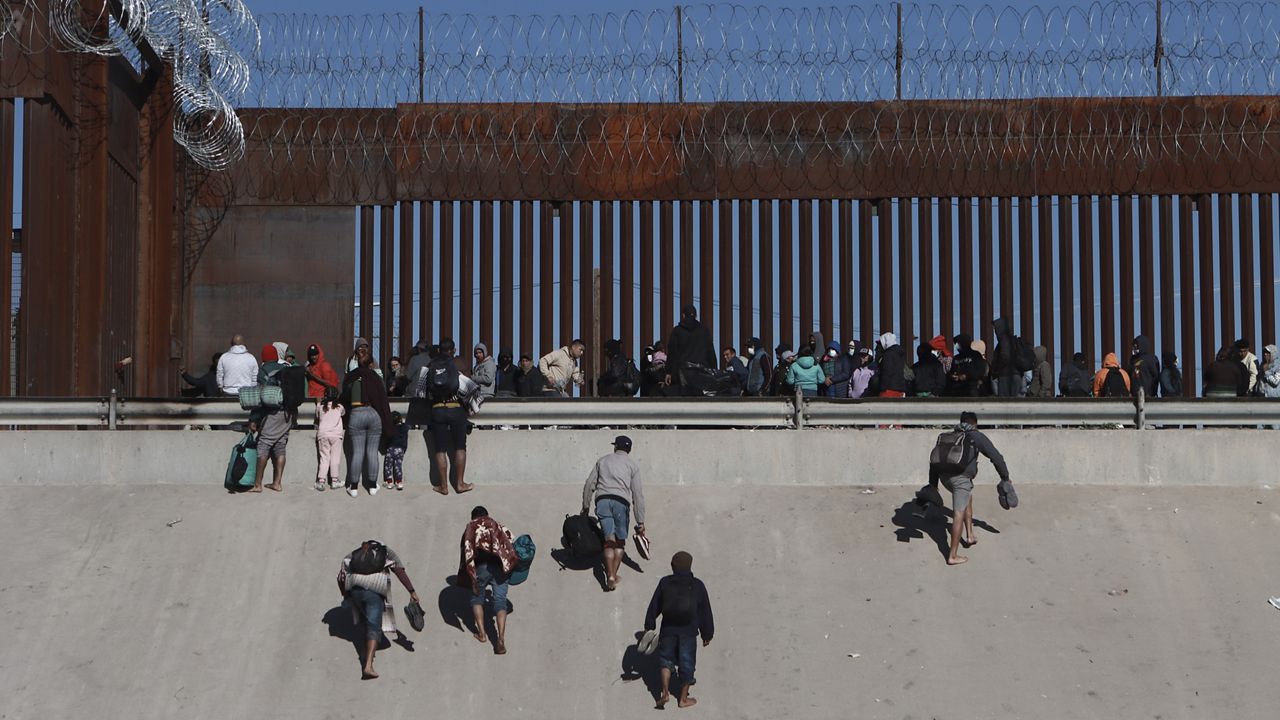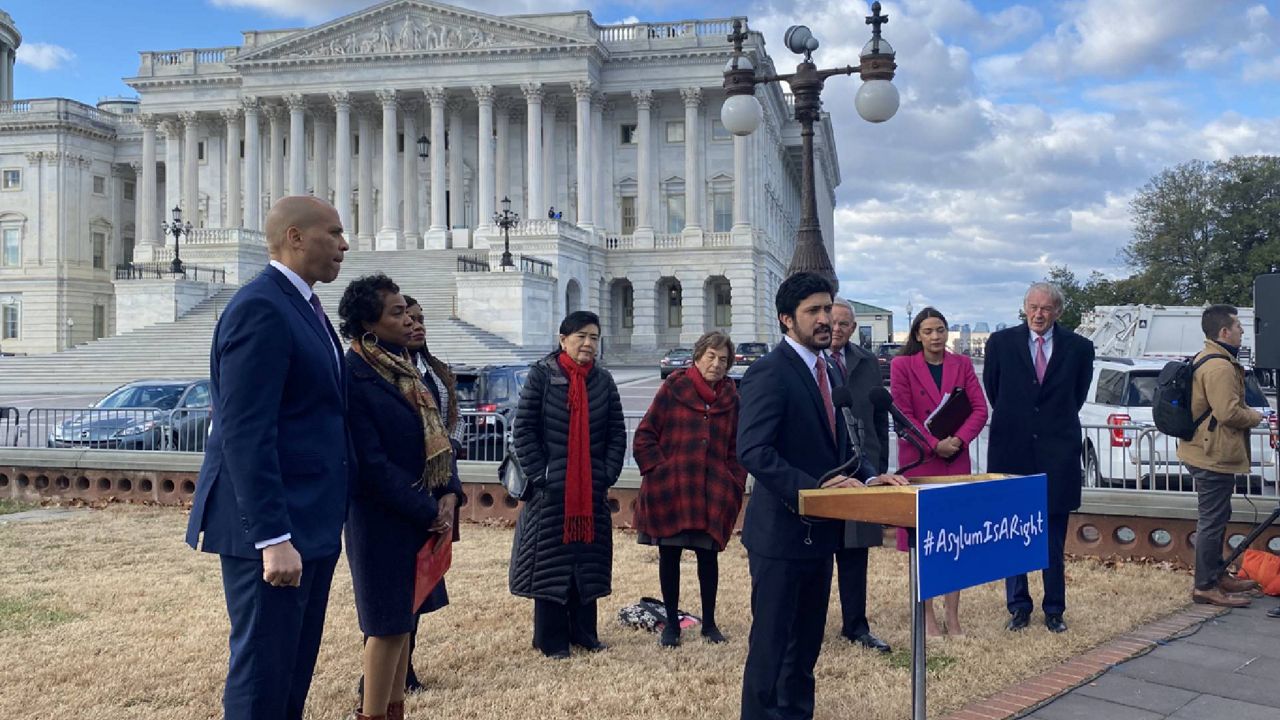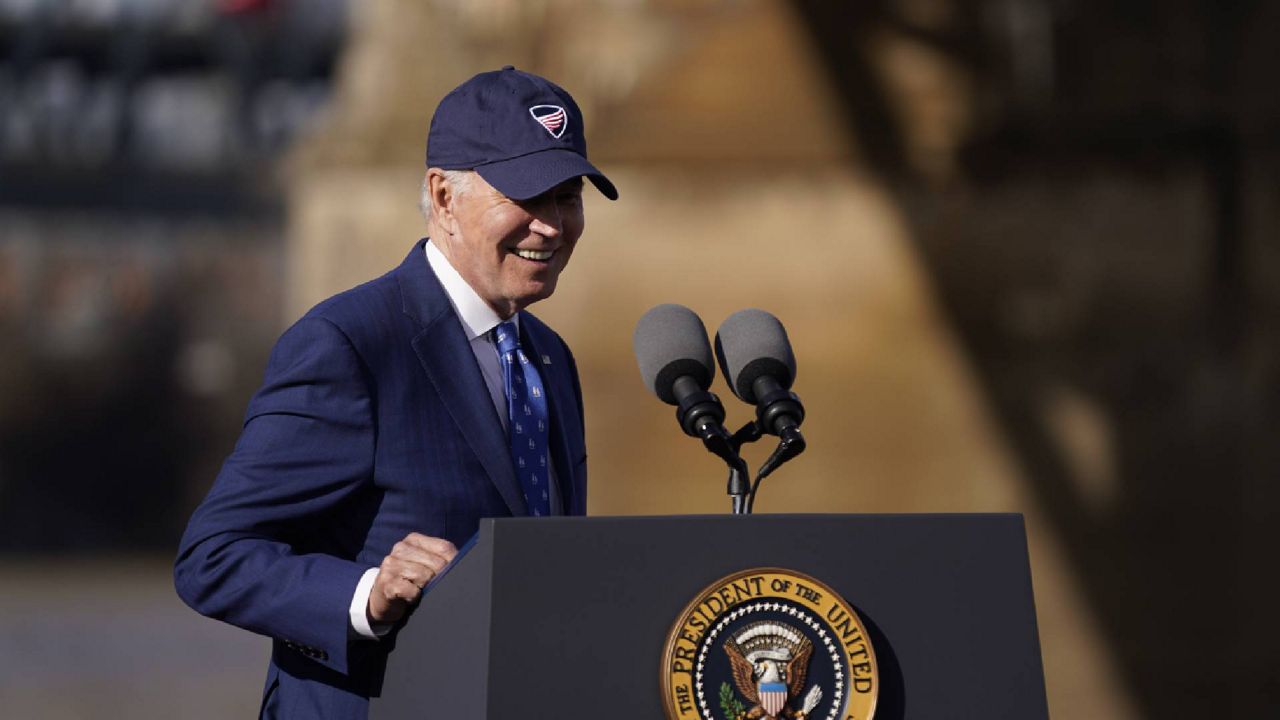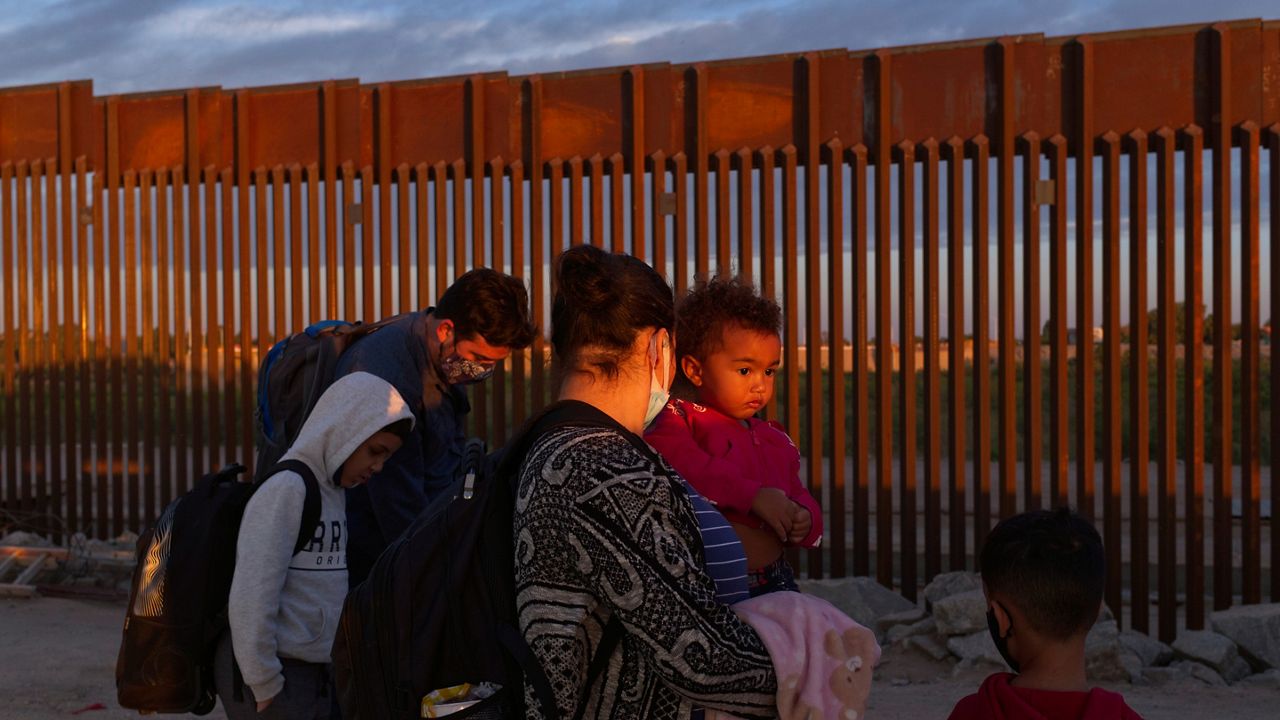In a new rule unveiled Tuesday, Biden administration officials said they intend to restrict migrants’ access to claim asylum at the U.S. border to its narrowest yet – temporarily blocking them from asking for protections if they do not first try in another country or through a new mobile app known for glitches and privacy concerns.
Immigration advocates immediately balked at the proposal, calling it a near-total ban on the right to asylum, a protection guaranteed by both U.S. and international law. The new policy is similar to one imposed under former President Donald Trump that was later blocked in federal court.
Officials wrote in the proposal Tuesday that the new restrictions are necessary because they predict overwhelming numbers of people arriving at the border once pandemic-related restrictions end in May.
Department of Homeland Security projections suggest encounters could rise to 11,000-13,000.
“Such a high rate of migration risks overwhelming the departments’ ability to effectively process, detain, and remove, as appropriate, the migrants encountered,” DHS and Justice Department officials wrote in the proposal.
The restrictions would go into effect in the coming weeks, after a 30-day public comment period, and last for two years. Homeland Security Secretary Alejandro Mayorkas had first previewed the rule in early January.
The policy, which is likely to be challenged in court, would assume people are not eligible for asylum if they traveled through another country and did not first apply – and get denied – for protections there, or if they did not attempt to claim asylum through a new smartphone app called CBP One.
The app allows migrants to book appointments at ports of entry along the U.S.-Mexico border. As previously reported by Spectrum News, it has caused frustration and confusion among migrants, many of whom say it didn’t work for them at all.
People qualify for asylum – a legal immigration pathway – if they have credible fear of persecution in their home country because of their race, religion, political opinion or membership in a certain social group. They can make a legal claim once on U.S. soil.
There are limited exceptions to the new restrictions. For example, it does not apply to unaccompanied children, or people who are having a medical emergency. Migrants could also prove the CBP One app did not work for them, or that they face an imminent, extreme threat to life or safety, such as rape, kidnapping, torture, or murder.
Krish O’Mara Viganarajah, president of the Lutheran Immigration and Refugee Service, called the rule “ludicrous and life-threatening” in a statement Tuesday.
“This rule reaches into the dustbin of history to resurrect one of the most harmful and illegal anti-asylum policies of the Trump administration,” she said.
“This transit ban defies decades of humanitarian protections enshrined in U.S. law and international agreements, and flagrantly violates President Biden’s own campaign promises to restore asylum.”
Kate Lincoln-Goldfinch, an immigration attorney in Austin, Texas, said the proposed policy is illegal and she expects it will be challenged in court, just like the similar Trump-era rule.
“It [also] assumes that someone who has fled their own country is safe in any other country but their own. That's actually not the case,” she added. “There may be a cartel who has a network through three or four countries.”
President Joe Biden and DHS officials have come under deep scrutiny in the last two years for their handling of the record number of arrivals at the border.
Border agents counted nearly 2.4 million attempted crossings at the southwest border last year, after topping 1.7 million in 2021. About half of those resulted in immediate expulsion under Title 42, the pandemic restrictions still in place for now.
In the rule published online Tuesday, DHS and Justice officials wrote that they had mostly seen in recent years an increase in asylum-seekers from outside of Mexico, especially people from Cuba, Haiti, Nicaragua and Venezuela.
New restrictions on those populations imposed last month caused arrivals from those four countries to drop by 95% in about three weeks. But the rule proposed Tuesday would go beyond those policies and restrict anyone claiming asylum if they did not meet the new requirements.









